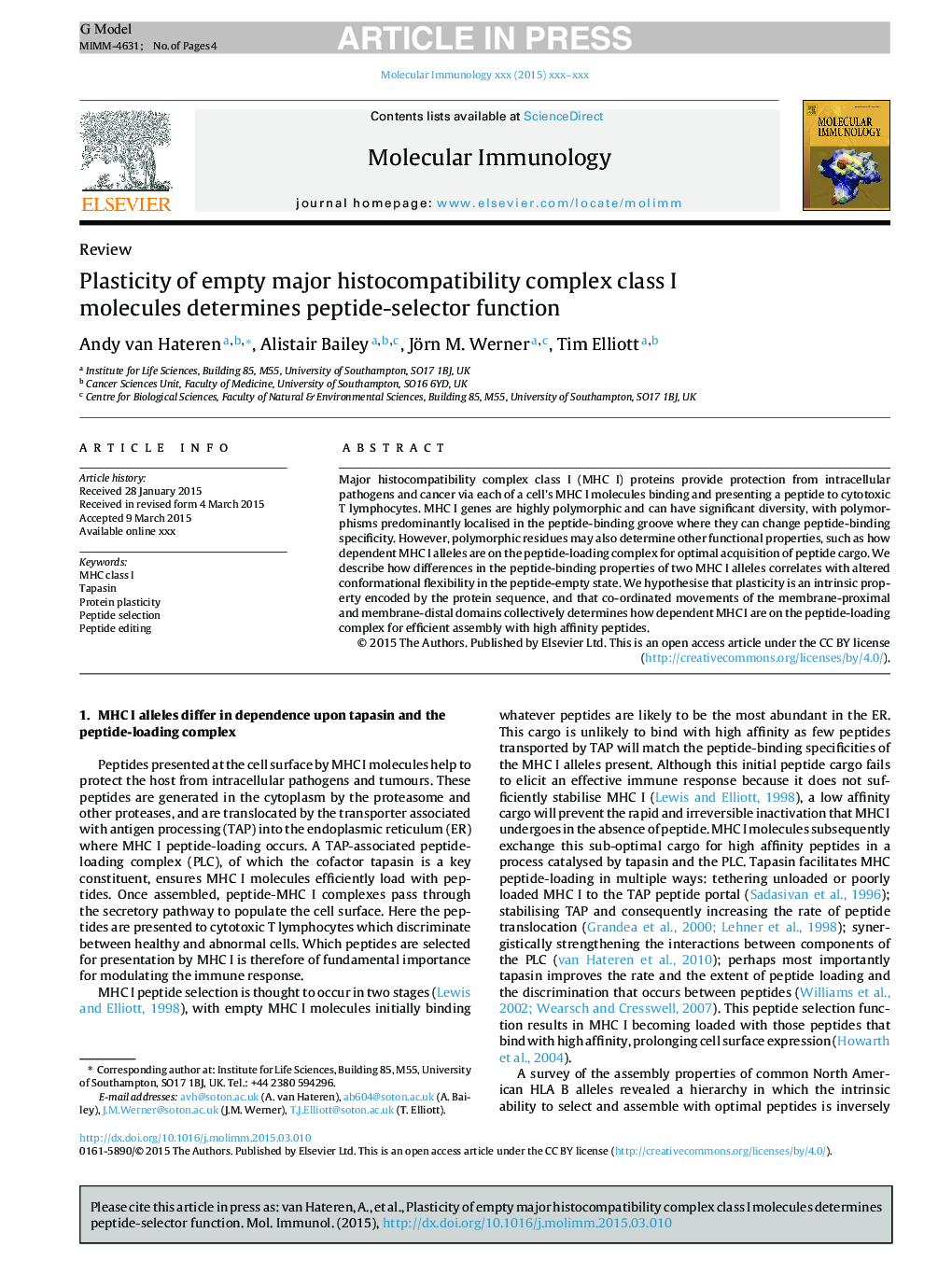| Article ID | Journal | Published Year | Pages | File Type |
|---|---|---|---|---|
| 5916389 | Molecular Immunology | 2015 | 4 Pages |
Abstract
Major histocompatibility complex class I (MHC I) proteins provide protection from intracellular pathogens and cancer via each of a cell's MHC I molecules binding and presenting a peptide to cytotoxic T lymphocytes. MHC I genes are highly polymorphic and can have significant diversity, with polymorphisms predominantly localised in the peptide-binding groove where they can change peptide-binding specificity. However, polymorphic residues may also determine other functional properties, such as how dependent MHC I alleles are on the peptide-loading complex for optimal acquisition of peptide cargo. We describe how differences in the peptide-binding properties of two MHC I alleles correlates with altered conformational flexibility in the peptide-empty state. We hypothesise that plasticity is an intrinsic property encoded by the protein sequence, and that co-ordinated movements of the membrane-proximal and membrane-distal domains collectively determines how dependent MHC I are on the peptide-loading complex for efficient assembly with high affinity peptides.
Keywords
Related Topics
Life Sciences
Biochemistry, Genetics and Molecular Biology
Molecular Biology
Authors
Andy van Hateren, Alistair Bailey, Jörn M. Werner, Tim Elliott,
